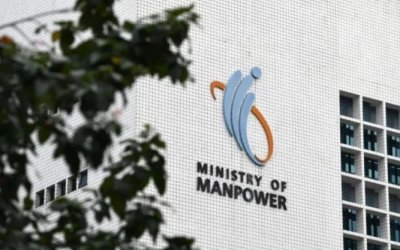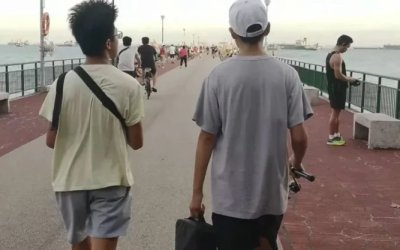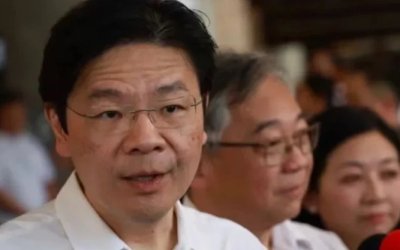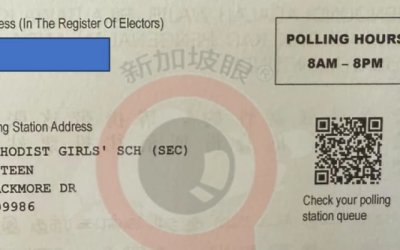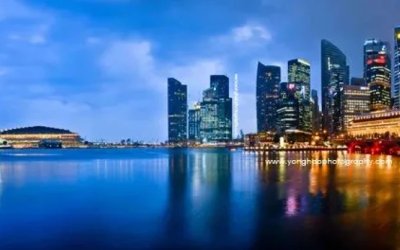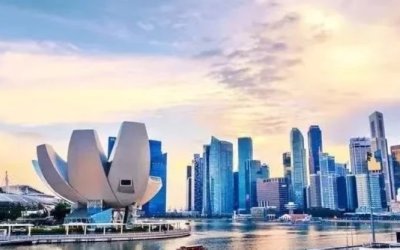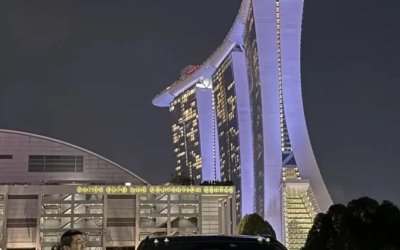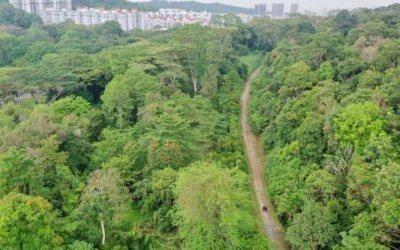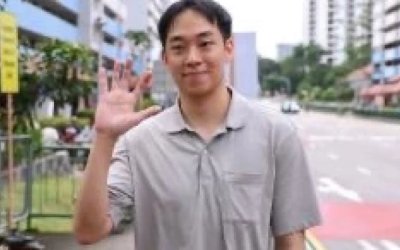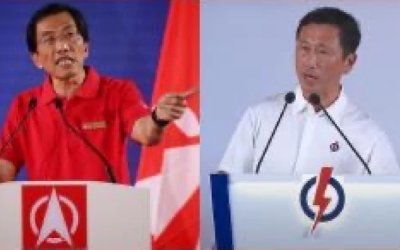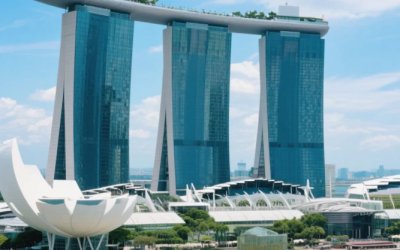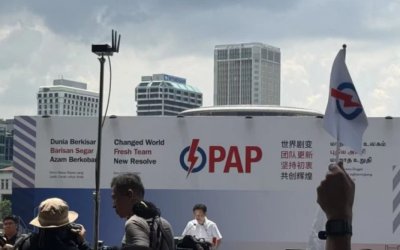The aim wasn’t just to make the city more pleasant. A cleaner city, Lee Kuan Yew reasoned, would create a stronger economy.
运动的目的不仅是为了让新加坡更加宜人。在李光耀看来,城市环境更加干净,经济就能更加强劲。
“These standards will keep morale high, sickness rate low, and so create the necessary social conditions for higher economic growth in industry and in tourism. This will contribute to the public good, and in the end to everyone’s personal benefit,” he said.
他还表示:“设立这些标准会让人民斗志高昂,降低疾病发生率,从而创造必要的社会条件,让工业和旅游业经济增长更加迅速。这场运动会改善公众福利,最后每个人都可以受益。”
On all of these counts, Singapore has done well. Life expectancy has grown from 66 to 83 (which is third best globally). In 1967, tourist arrivals were a little over 200,000 compared to a just shy of 10 million for the first three quarters of 2018. Inward foreign direct investment ballooned from US$93m in 1970 to US$39bn in 2010. It’s now the fifth largest recipient of foreign direct investment, receiving $66bn in 2017.
在上述所有方面,新加坡都做得很不错。人民的预期寿命从66岁增长到了83岁(达到了全球第三的水平)。1967年新加坡入境游客人数只有20万多一点,而到2018年,前三个季度的游客人数就已接近1000万了。外国直接投资也从1970年时的9300万美元飙升到2010年时的390亿美元。现在新加坡接受的外国直接投资额排名全球第五,在2017年就收到了660亿美元。
Nobody claims it’s all down to a single anti-littering campaign. But the health benefits are understood. It makes sense that tourists would return to a clean destination. And clean streets send a signal to foreign executives that a city is capable and adheres to the rule of law. It’s difficult to say how much, but in some way, shape or form, this campaign mattered.
没有人会说之所以能取得这些成就,是因为发起了一场反对乱扔垃圾的运动。但健康卫生带来的效益是有目共睹的。干净整洁的旅游地会带来更多回头客,干净整洁的街道也在告诉外国公司高管:这座城市是法治城市,也能坚守法治。很难说清洁运动有多重要,但从某种程度上说,不管是规模还是形式,这场运动都意义重大。
As a rule, campaigns are not huge line items for departments or government budgets. Between 2010 and 2014, for example, Singapore’s National Environment Agency spent an average of $3m per year on anti-litter campaigns and outreach activities.
一般来说,社会运动在部门或政府预算中不会占很大比重。比如2010至2014年间,在反对乱扔垃圾运动和各种宣传活动上,新加坡环境局平均每年的花费是300万美元。
A Fine City
爱罚之城
Discount and souvenir stores in Singapore often carry T-shirts that read: “Singapore: A fine city” followed by a multitude of things for which you can get fined. As jokes go, it’s tired - Singaporeans are more likely to roll their eyes than laugh.
新加坡的折扣店和纪念品店经常会卖这种T恤,上面印着“新加坡:一座美丽的城市” (译者注:fine也可表示罚款),这行字下面还印有很多漫画,告诉你做什么会被罚款。但玩笑开归开,老被罚款还是挺让人厌烦的——新加坡人就不觉得好笑,只会无奈地翻个白眼。
But it’s not wrong. Singapore has a habit of banning what it sees as undesirable behaviour and enforcing each ban with financial penalties. The 1968 Keep Singapore Clean campaign was the first to attempt to moderate citizens’ behaviour through fines. Since then, Singapore has adopted fines with gusto. Typically, the authorities issue tens of thousands of fines a year for littering. The minimum fine is SG$300 (US$217).
但这种说法并没有错。新加坡已经养成了习惯:只要觉得是不当行为,就马上禁止,而且还要课以罚款。1968年的“保持新加坡清洁运动”首次尝试了通过罚款来规范公民行为。从那以后,新加坡一直积极采取罚款措施。通常当局每年会对乱扔垃圾行为处以数万元的罚款,最低罚款标准为300新币(折合217美元)。
The push to make Singapore spotless started during Lee Kuan Yew’s time. He would intervene personally, sending notes to his ministers or bureaucrats when he saw something out of place. He believed that little things mattered, and worried that people would “take advantage of a slackening of the administrative grip on the situation" if smaller infractions were ignored.
在李光耀时代,政府就致力于把新加坡变得一尘不染了。要是哪里秩序混乱,李光耀会亲自出面干预,对他的部长或官员做出提醒。他相信防微杜渐的道理,担心如果对微小的违规行为置之不理,人们就会“钻行政管控放松的空子”。
There are laws on the books that have always seemed weirdly strict to foreigners. Singapore famously banned the import of chewing gum (it’s not illegal to merely possess it). There are fines for bringing durian (a pungent smelling tropical fruit) on the train and for not flushing a public toilet (mostly a moot point, given that most toilets flush automatically now).
成文的法律似乎对外国人总是异常严格。新加坡以禁止进口口香糖而闻名于世(单单持有口香糖并不违法)。地铁上带榴梿(一种有强烈刺激性气味的热带水果)要罚款,上公厕不冲水也要罚款(这一条其实已经没有实际意义了,因为现在大部分厕所都是自动冲水的)。
on the books: Set down in writing or an audio or video recording 记录在案的
There are also fines for spitting or for using someone else’s wifi without permission. In 2009, a taxi driver was fined for being naked in public view in his own home. Vaping e-cigarettes has already been banned.
随地吐痰、未经许可就连接他人的WiFi,这些也要被罚款。2009年,一个计程车司机因为在家里没穿衣服而被处以罚款,罪名是“在公众能看到的地方裸露身体”。电子烟则早就已经在被禁之列了。
Perhaps it shouldn’t seem so unusual. It’s true that the West certainly differs when it comes to civil and political rights, and penalties here can be extremely tough, including the death penalty for drug offences. But Singapore is hardly the only jurisdiction to show enthusiasm for fines to discourage petty offences. New South Wales in Australia collected over $172m (US$121m) in parking fines in the last financial year, while councils in the UK collected £820m in a similar period. (Parking is actually a far smaller administrative challenge in Singapore because of deliberate policies to reduce car ownership rates).
也许这没什么可以大惊小怪的。确实,西方国家在民事和政治权利上肯定有所不同,有些刑罚也是相当之重,比如毒品相关的罪行可以导致死罪。但要说到热衷以罚款来防止人们在小事上犯错,新加坡的司法机构可不是唯一一个。在上一个财政年度里,澳大利亚的新南威尔士在违章停车一项上就罚了1.72亿澳币(折合1.21亿美元),英国法院则在同样时间里罚了8.2亿英镑。(停车管理在新加坡其实倒是容易得多,因为政府早已通过各项政策降低了轿车的拥有率。)
Even the broader approach has analogues in the West. George Kelling and James Q Wilson wrote the famous essay Broken Windows in 1982, which argued that a broken window “is a signal that no one cares, and so breaking more windows costs nothing”. So the prescription was to address small infractions aggressively before they became major problems. Former New York Mayor Rudy Giuliani claimed to have reduced crime in New York with this approach. It sounds a little familiar in Singapore.


